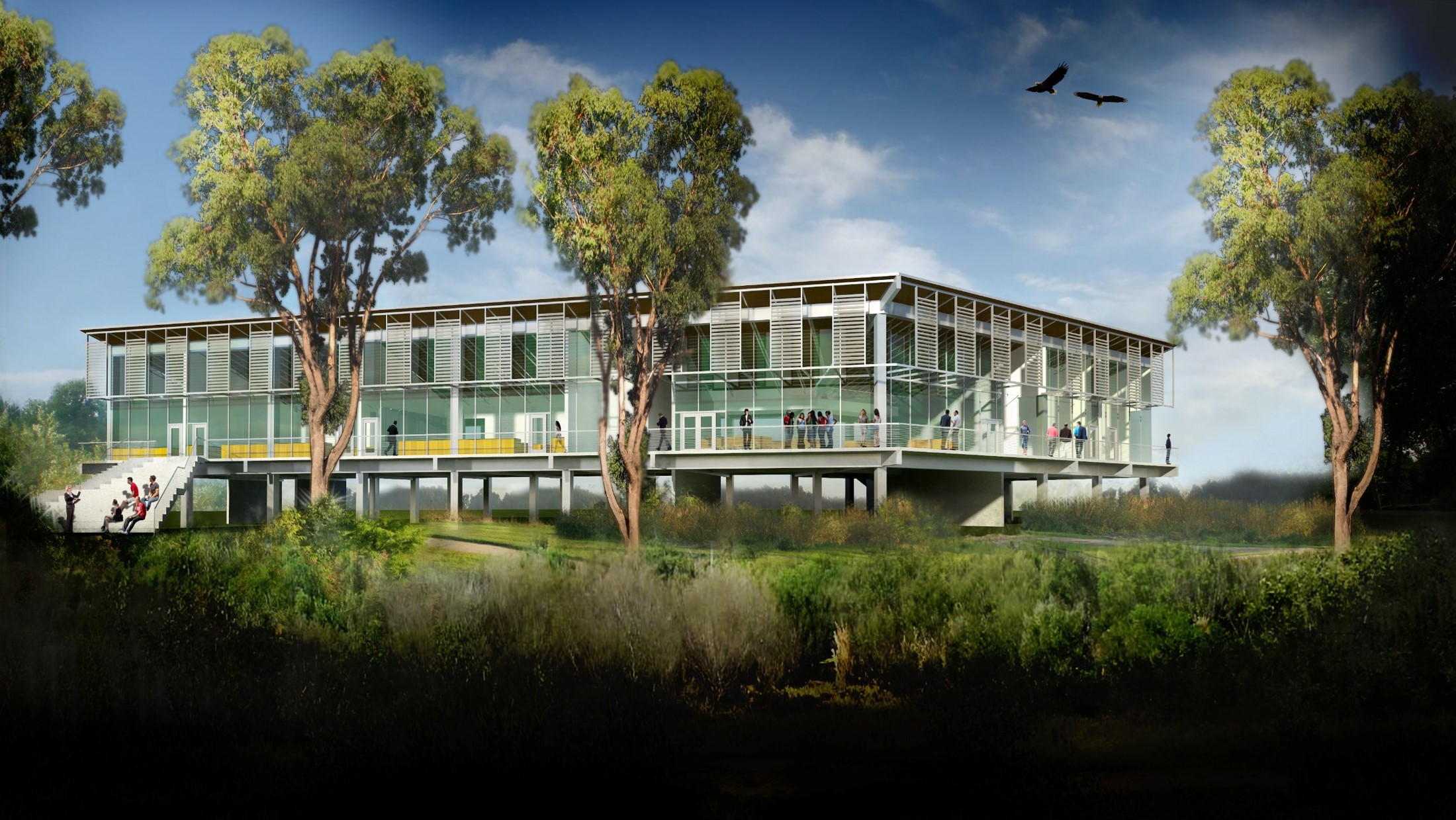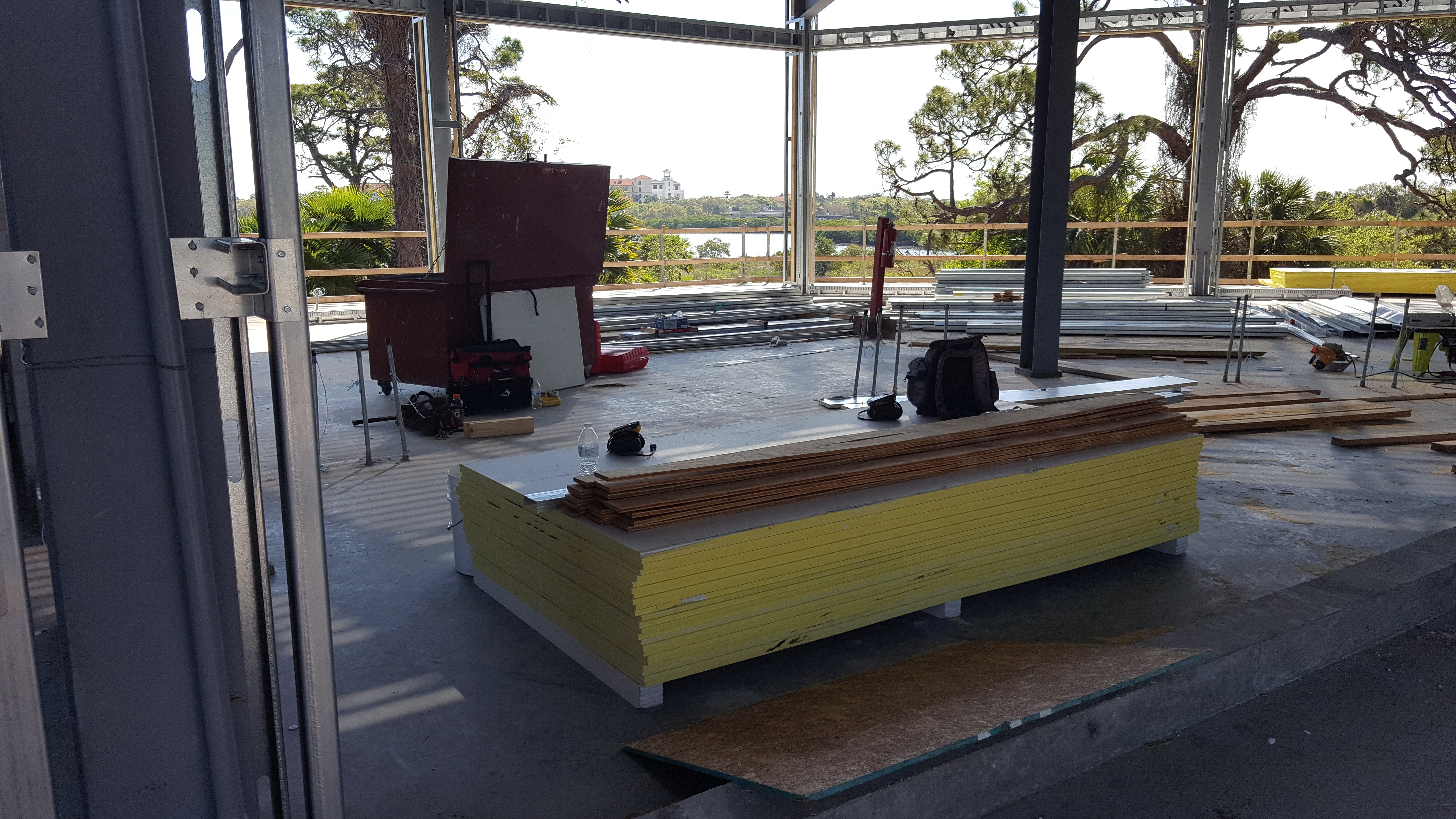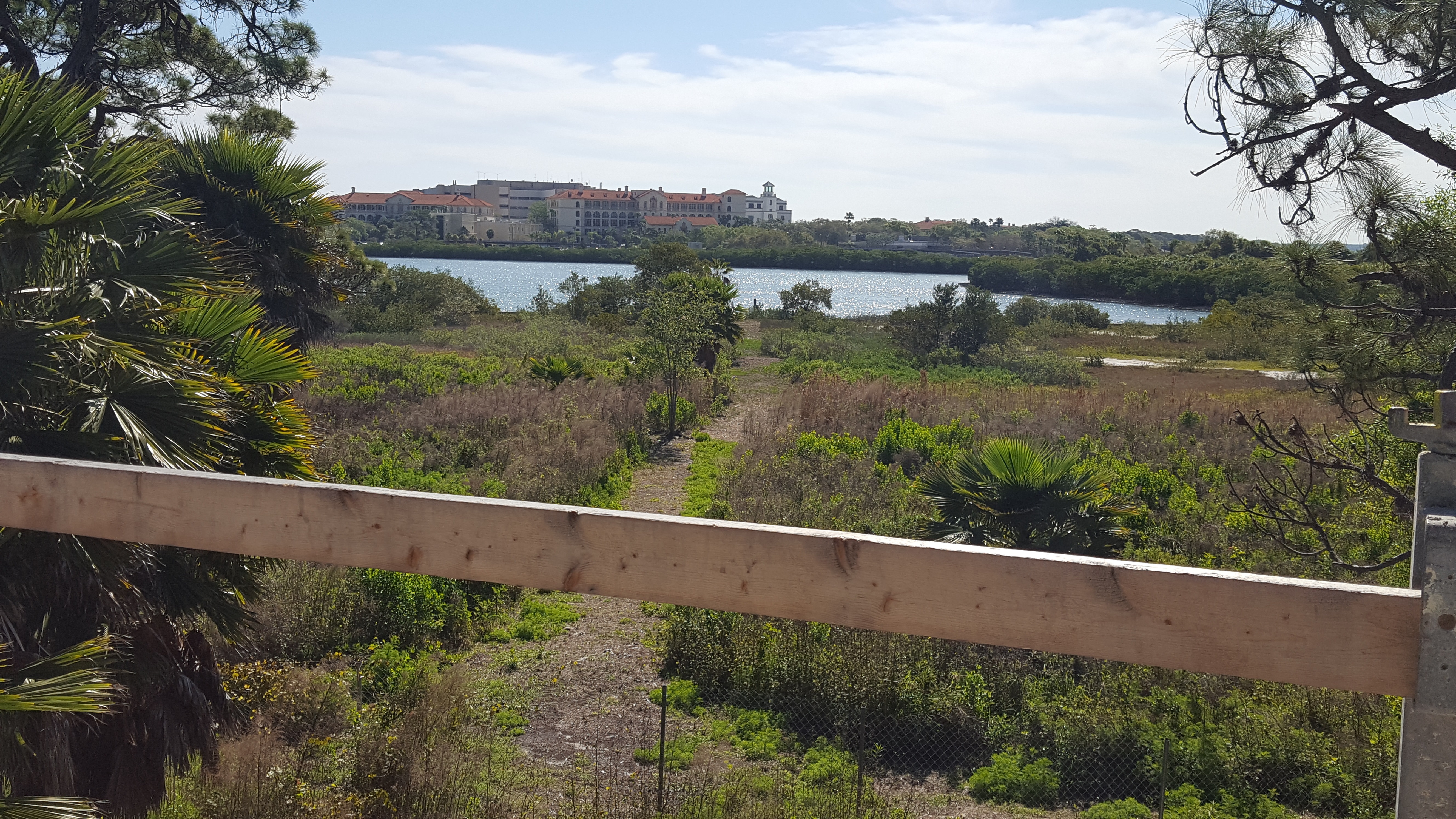The new STEM facility is located between Bay Pines Veteran’s Hospital and Madeira Beach Elementary School. Construction should be complete later this summer.
Photo by Victoria Parsons
A new facility scheduled to open this summer promises to benefit both Tampa Bay and St. Petersburg College (SPC) students – as well as citizen-scientists across the region. SPC’s Bay Pines Learning Center includes classroom space, a lab for student researchers and a community room that can accommodate up to 100 visitors. Underneath the raised waterfront building, large open areas can be used for other community events, including citizen-scientist programming led by local experts.
“This will be a completely new environment for studying environmental and marine science,” said the late John Chapin, former dean of natural science at SPC who passed away in February 2017. “This environment will get people excited about science. It’s designed to raise enthusiasm about the natural world and further studies in science, not just among our students, but all students, including elementary, middle and high schoolers.”
SPC students get jump on peers

Photo courtesy St. Petersburg College
College classes will begin at the new center this fall, with a focus on science, technology, engineering, and math, generally referred to collectively as STEM. Course offerings have not been finalized, but they are likely to include biology, oceanography, robotics, instrumentation and education. “The goal is to provide the education and research facilities that graduates need to walk into a marine technology job or give them a major boost if they continue their education,” said Dr. Linae Boehme-Terrana, interim director of the center.
Students from SPC’s engineering technology program will design a sophisticated system of wireless sensors, which will be used to demonstrate the importance of integrating various disciplines including biology, botany and chemistry
Emerging technologies
“We want our graduates to be ready to work for organizations like SWFWMD (Southwest Florida Water Management District) or local governments,” said Boehme-Terrana. “They’ll already have the experience they need in using the latest instrumentation.” The facility also will provide students opportunities to gain exposure to emerging technologies that are becoming more prevalent in the workplace, such as Raspberry Pi, which can improve data collection efficiency.
Prospects abound at the facility to study stormwater and water quality on site and beyond, in nearby Bay and Gulf waters and its impact on underwater wildlife and habitats. Other wildlife, including migratory and resident birds, will present the chance to observe and document site usage and behaviors over time.
Like all SPC programs, the center will work closely with industry to develop programs that meet the goals of local governments and businesses. “It’s particularly important with STEM because things change so fast,” she said.
Teaching the teachers
 The STEM offerings will play a key role in SPC’s four-year education degree. Along with teachers-in-training, SPC is partnering with Pinellas County Schools to develop professional development opportunities that enhance knowledge for current teachers. “It’s a field where you need to continue learning and adapting to do well,” Boehme-Terrana said. “Some teachers may be really comfortable with anatomy but less comfortable with chemistry so we can offer weekend or evening classes specifically geared to those needs.”
The STEM offerings will play a key role in SPC’s four-year education degree. Along with teachers-in-training, SPC is partnering with Pinellas County Schools to develop professional development opportunities that enhance knowledge for current teachers. “It’s a field where you need to continue learning and adapting to do well,” Boehme-Terrana said. “Some teachers may be really comfortable with anatomy but less comfortable with chemistry so we can offer weekend or evening classes specifically geared to those needs.”
Over the long term, Boehme-Terrana would like to see the center develop a teacher certification in STEM education.
Opportunities for learners of all ages
Students in middle and high school also will have opportunities to access the facility to encourage interest in STEM programs by enhancing traditional classroom activities, she adds. “We’re building partnerships with local schools to offer programs and field trips, as well as serve as a site for science fairs.”
Field trips – led by professionals from organizations like the Florida Fish and Wildlife Conservation Commission, U.S. Geological Survey, Tampa Bay Watch and other local experts – are expected to be held at the center on weekends. Boehme-Terrana, who earned her PhD in marine biology at the University of South Florida, also is reaching out to retired professors who want to keep teaching without a full-time commitment.
“We’re working on a schedule now,” she said. “We’d like to see everyone from Girl Scouts to Rotary Clubs visit the center. Our goal is to make STEM education exciting and engaging to everyone in a way that’s enduring — not just a good memory.”
For more information, or to join an email list that provides information on upcoming programs and events, contact Boehme-Terrana at boehme.linae@spcollege.edu or call 727-791-2424.
